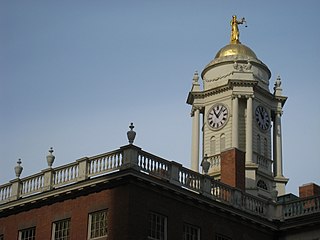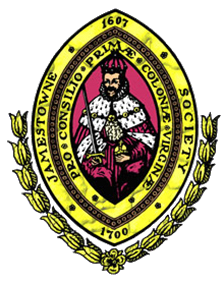Theophilus Eaton was a merchant, farmer, and Puritan colonial leader who was the co-founder and first governor of New Haven Colony, Connecticut.

The New Haven Colony was a small English colony in North America from 1637 to 1664 in what is now the state of Connecticut.

The Connecticut Colony or Colony of Connecticut, originally known as the Connecticut River Colony or simply the River Colony, was an English colony in New England which became the state of Connecticut. It was organized on March 3, 1636 as a settlement for a Puritan congregation, and the English permanently gained control of the region in 1637 after struggles with the Dutch. The colony was later the scene of a bloody war between the colonists and Pequot Indians known as the Pequot War. Connecticut Colony played a significant role in the establishment of self-government in the New World with its refusal to surrender local authority to the Dominion of New England, an event known as the Charter Oak incident which occurred at Jeremy Adams' inn and tavern.

Nathaniel Eaton was an English academic and the first schoolmaster of Harvard College in Cambridge, Massachusetts, and later became a clergyman.
These are Oxford poetry anthologies of English poetry, which select from a given period. See also The Oxford Book of Twentieth Century English Verse.
Several anthologies of religious poetry have been published by Oxford University Press.
The Master Mercers have been:

The History of Hartford, Connecticut has occupied a central place in Connecticut's history from the state's origins to the present, as well as the greater history of the United States of America.
This is a list of Civic Sheriffs and High Sheriffs of the County and City of Bristol, England.
The Boston Board of Selectmen was the governing board for the town of Boston from the 17th century until 1822. Selectmen were elected to six-month terms early in the history of the board, but later were elected to one-year terms.

Jamestowne Society is an organization founded in 1936 by George Craghead Gregory for descendants of stockholders in the Virginia Company of London and the descendants of those who owned land or who had domiciles in Jamestown or on Jamestown Island prior to the year 1700.
The Sheriff of Dublin City was the Sovereign's judicial representative in Dublin. Initially an office for lifetime, assigned by the Sovereign, the Sheriff became an annual appointment following the Provisions of Oxford in 1258. Besides his judicial importance, the sheriff had ceremonial and administrative functions and executed High Court Writs.

Constitutionalism in the United States is a basic value espoused by political parties, activist groups and individuals across a wide range of the political spectrum, that the powers of federal, state and local governments are limited by the Constitution of the United States and that the civil and political rights of citizens should not be violated.





